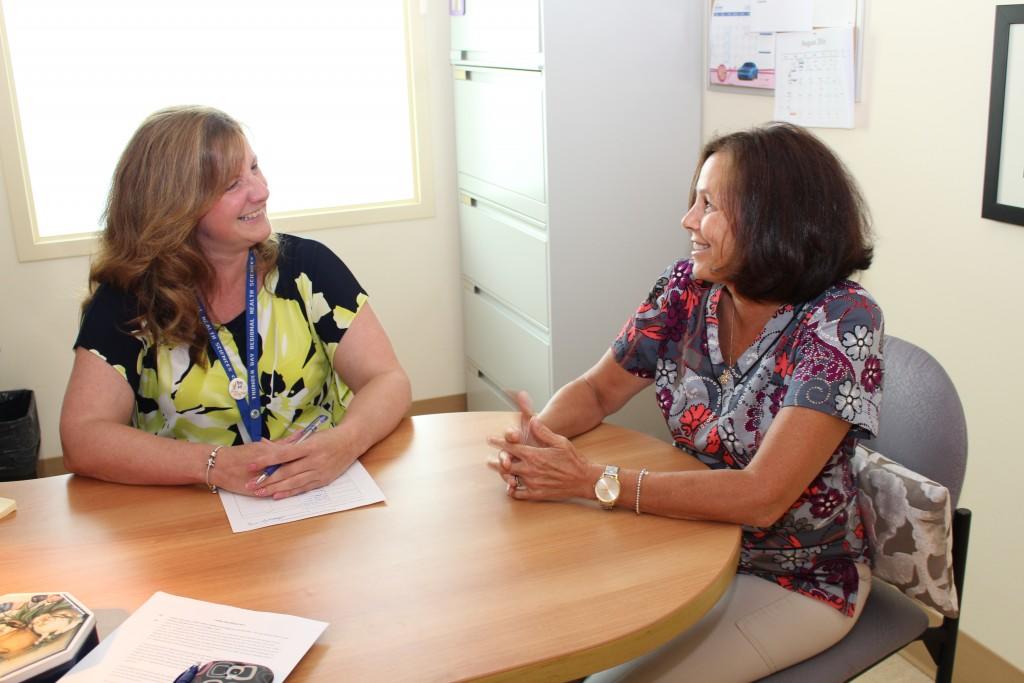Improving Through Engagement
by Heather Vita
 Michele Miller, Manager of Cardio Respiratory Services, uses leader rounding to further connect with her team. When leaders round on employees, they get to know them better, it shows responsiveness to needs, and allows for an opportunity to recognize great work.
Michele Miller, Manager of Cardio Respiratory Services, uses leader rounding to further connect with her team. When leaders round on employees, they get to know them better, it shows responsiveness to needs, and allows for an opportunity to recognize great work.An engaged staff helps foster a greater clinical, academic, and scientific environment for our patients and their families at the Health Sciences Centre. When we introduced the new tactic of leader rounding, Michele Miller, Manager of Cardio Respiratory Services, was excited for the opportunity to further connect with her team.
“When leadership rounding was introduced, I was fully on-board and ready to start a more formal approach, having direct questions that I could weave into conversations,” said Michele. “It gave me permission to reconnect with my team and socialize with a purpose.”
Leader rounding provides managers the opportunity to open a constructive dialogue with their teams about what is working well within their jobs, what could be improved, and what could be done differently. It’s also a great way to recognize employees for a job well done.
“Open communication is so important. Employees need to be comfortable sharing their concerns and opinions and they want to feel like they’re really being heard,” said Michele. “As a manager, it’s my job to ensure that my staff has the tools they need to do their work. In order for managers to do that, we need to listen to what we’re being told and keep pursuing those conversations.”
My staff appears happier and more trusting of me and my role as someone who is part of their team, working with them and supporting them in what needs to be done. It’s been really encouraging.
Michele believes that leader rounding also enables a more proactive approach to improving the work place. “By always checking in and asking how things are going, we can make any necessary changes in a more controlled and positive way, rather than responding to a problem or crisis after it has already occurred,” she explained.
Michele has noticed a positive change. “My staff appears happier and more trusting of me and my role as someone who is part of their team, working with them and supporting them in what needs to be done. It’s been really encouraging.”
After 29 years at the Health Sciences Centre and 20 years in a leadership role, Michele’s biggest take-away lesson is that everything boils down to relationships. “Everyone has a story,” she said. “Listen to what your team has to say so that you can be a better leader for them. When everyone works together, we have much better outcomes in terms of employee satisfaction, and that translates to better outcomes for our patients and families.”